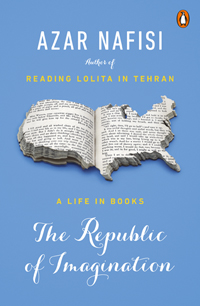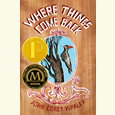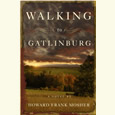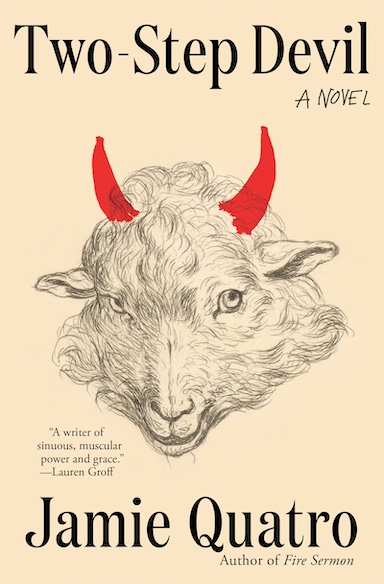In Praise of Imaginative Knowledge
In The Republic of Imagination, Azar Nafisi argues for enlightenment through literature
Azar Nafisi is a devout believer, to put it mildly, in the transformative power of literature. In her 2003 bestseller, Reading Lolita in Tehran, books are a spiritual lifeline amid the horrific violence and repression of post-revolutionary Iran. Whether they can serve a similarly critical purpose in the twenty-first-century U.S. is the question at the heart of The Republic of Imagination: A Life in Books. Or rather, the question is whether they will; Nafisi’s fear is that we simply don’t respect our own literature enough to let it save us. She combines memoir, social commentary, and literary criticism to demonstrate that Americans have an extraordinarily rich cultural resource—one that guides us toward our better impulses—and that as a nation we are neglecting and devaluing it at our peril.
 The three books Nafisi discusses—The Adventures of Huckleberry Finn, Babbitt, and The Heart is a Lonely Hunter—are a seemingly unbalanced trio. Huckleberry Finn falls solidly in the category of American masterworks, while the other two are, at best, minor classics. Nafisi’s aim, though, is not to champion the premier books of the American canon. She wants, among other things, to plumb the American psyche through a literature that both reveals and helped shape it, and for that purpose she probably could not have chosen three better candidates. In each she finds the intense loneliness and isolation that are the inevitable down side of American individualism. And each book grapples, in one way or another, with the tension between cultural convention and personal morality—a tension that is universal but especially keenly felt in a society that exalts the individual.
The three books Nafisi discusses—The Adventures of Huckleberry Finn, Babbitt, and The Heart is a Lonely Hunter—are a seemingly unbalanced trio. Huckleberry Finn falls solidly in the category of American masterworks, while the other two are, at best, minor classics. Nafisi’s aim, though, is not to champion the premier books of the American canon. She wants, among other things, to plumb the American psyche through a literature that both reveals and helped shape it, and for that purpose she probably could not have chosen three better candidates. In each she finds the intense loneliness and isolation that are the inevitable down side of American individualism. And each book grapples, in one way or another, with the tension between cultural convention and personal morality—a tension that is universal but especially keenly felt in a society that exalts the individual.
The battle between the free spirit and hidebound convention, between society’s ethical code and the moral truth in a human heart, is the thematic core of Huckleberry Finn, of course, and Twain’s masterpiece is Nafisi’s chief text—you might even say her obsession—in The Republic of Imagination. In Huck she finds a type of morally sensitive, modest individualism that “shapes my idea of America, the one I tried to share with my students in Tehran, explaining to them that moral choice comes from a sound heart and from a constant questioning of the world and oneself.” Her analysis of Huck is threaded through a remembrance of her longtime friend Farah, an Iranian exile living in the U.S. Farah was lucky to escape with her life, while her husband was not so fortunate. Nafisi sees in Farah something of the spirit Huck possesses, marked by resilience and “the kind of courage that shies away from being publicly acknowledged.”
 If Huck Finn is Nafisi’s model of what’s best about America, George Babbitt is, not at all surprisingly, the embodiment of what’s worst, or at least most potentially dangerous. He is, in her words, “the ultimate insider: a character unlike Huck in every way and yet every bit as iconically American.” Babbitt’s crassness and conventionality, his attachment to status-conveying possessions, and his equation of virtue with material success all deprive him of the very courage he claims to hold dear. In the novel, Babbitt is ultimately a defeated figure, but Nafisi sees his misplaced values as alive, well, and highly destructive in contemporary America. He serves as a launching pad for a prolonged critique of trends in contemporary education, specifically of the Common Core, which Nafisi sees as devaluing the arts and what she calls “imaginative knowledge.” Although she indulges in plenty of commentary throughout The Republic of Imagination her argument against the Common Core is the part of the book that approaches polemic.
If Huck Finn is Nafisi’s model of what’s best about America, George Babbitt is, not at all surprisingly, the embodiment of what’s worst, or at least most potentially dangerous. He is, in her words, “the ultimate insider: a character unlike Huck in every way and yet every bit as iconically American.” Babbitt’s crassness and conventionality, his attachment to status-conveying possessions, and his equation of virtue with material success all deprive him of the very courage he claims to hold dear. In the novel, Babbitt is ultimately a defeated figure, but Nafisi sees his misplaced values as alive, well, and highly destructive in contemporary America. He serves as a launching pad for a prolonged critique of trends in contemporary education, specifically of the Common Core, which Nafisi sees as devaluing the arts and what she calls “imaginative knowledge.” Although she indulges in plenty of commentary throughout The Republic of Imagination her argument against the Common Core is the part of the book that approaches polemic.
In her discussion of The Heart is a Lonely Hunter, Nafisi returns to human questions of empathy and loneliness, wondering aloud whether our too-comfortable, complacent, technology-dependent existence has created “a sort of emotional and social autism.” She seems to see the declining taste for serious fiction as simultaneously cause and effect. “In one sense,” she writes, “to deny literature is to deny pain and the dilemma that is called life.”
Nafisi’s diagnosis is rather bleak, at least on one level: The Republic of Imagination is something of a jeremiad, a lamentation on how we have lost our way. Her complaint, however, contains its own remedy. Her own passionate love of literature is evident on virtually every page, and she has more than enough eloquence to awaken some of the same love in her readers. Anyone who has not read or recently revisited the work of Twain, Carson McCullers, Sinclair Lewis, or any of the other writers Nafisi invokes, is likely to come away from this book eager to do so.

Maria Browning is a fifth-generation Tennessean who grew up in Erin and Nashville. A graduate of Mount Holyoke College, she has attended the Clothesline School of Writing in Chicago, the Moss Workshop with Richard Bausch at the University of Memphis, and the Sewanee Writers’ Conference. She lives in White Bluff.


